第95章 V(8)
It is sufficiently proved that the American,--the New Englander,--the Bostonian, can breed strong and sound children, generation after generation,--nay, I have shown by the record of a particular family that vital losses may be retrieved, and a feeble race grow to lusty vigor in this very climate and locality. Is not the question why our young men and women so often break down, and how they can be kept from breaking down, far more important for physicians to settle than whether there is one cranial vertebra, or whether there are four, or none?
--But I have a taste for the homologies, I want to go deeply into the subject of embryology, I want to analyze the protonihilates precipitated from pigeon's milk by the action of the lunar spectrum,- shall I not follow my star,--shall I not obey my instinct,--shall I not give myself to the lofty pursuits of science for its own sake?
Certainly you may, if you like. But take down your sign, or never put it up. That is the way Dr. Owen and Dr. Huxley, Dr. Agassiz and Dr. Jeffries Wyman, Dr. Gray and Dr. Charles T. Jackson settled the difficulty. We all admire the achievements of this band of distinguished doctors who do not practise. But we say of their work and of all pure science, as the French officer said of the charge of the six hundred at Balaclava, "C'est magnifique, mais ce n'est pas la guerre,"--it is very splendid, but it is not a practising doctor's business. His patient has a right to the cream of his life and not merely to the thin milk that is left after "science " has skimmed it off. The best a physician can give is never too good for the patient.
It is often a disadvantage to a young practitioner to be known for any accomplishment outside of his profession. Haller lost his election as Physician to the Hospital in his native city of Berne, principally on the ground that he was a poet. In his later years the physician may venture more boldly. Astruc was sixty-nine years old when he published his "Conjectures," the first attempt, we are told, to decide the authorship of the Pentateuch showing anything like a discerning criticism. Sir Benjamin Brodie was seventy years old before he left his physiological and surgical studies to indulge in psychological speculations. The period of pupilage will be busy enough in acquiring the knowledge needed, and the season of active practice will leave little leisure for any but professional studies.
Dr. Graves of Dublin, one of the first clinical teachers of our time, always insisted on his students' beginning at once to visit the hospital. At the bedside the student must learn to treat disease, and just as certainly as we spin out and multiply our academic prelections we shall work in more and more stuffing, more and more rubbish, more and more irrelevant, useless detail which the student will get rid of just as soon as he leaves us. Then the next thing will be a new organization, with an examining board of first-rate practical men, who will ask the candidate questions that mean business,--who will make him operate if he is to be a surgeon, and try him at the bedside if he is to be a physician,--and not puzzle him with scientific conundrums which not more than one of the questioners could answer himself or ever heard of since he graduated.
Or these women who are hammering at the gates on which is written "No admittance for the mothers of mankind," will by and by organize an institution, which starting from that skilful kind of nursing which Florence Nightingale taught so well, will work backwards through anodynes, palliatives, curatives, preventives, until with little show of science it imparts most of what is most valuable in those branches of the healing art it professes to teach. When that time comes, the fitness of women for certain medical duties, which Hecquet advocated in 1708, which Douglas maintained in 1736, which Dr. John Ware, long the honored Professor of Theory and Practice in this Institution, upheld within our own recollection in the face of his own recorded opinion to the contrary, will very possibly be recognized.
My advice to every teacher less experienced than myself would be, therefore: Do not fret over the details you have to omit; you probably teach altogether too many as it is. Individuals may learn a thing with once hearing it, but the only way of teaching a whole class is by enormous repetition, representation, and illustration in all possible forms. Now and then you will have a young man on your benches like the late Waldo Burnett,--not very often, if you lecture half a century. You cannot pretend to lecture chiefly for men like that,--a Mississippi raft might as well take an ocean-steamer in tow.
To meet his wants you would have to leave the rest of your class behind and that you must not do. President Allen of Jefferson College says that his instruction has been successful in proportion as it has been elementary. It may be a humiliating statement, but it is one which I have found true in my own experience.